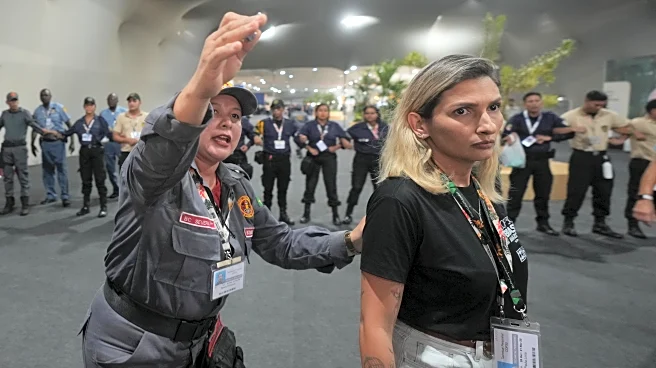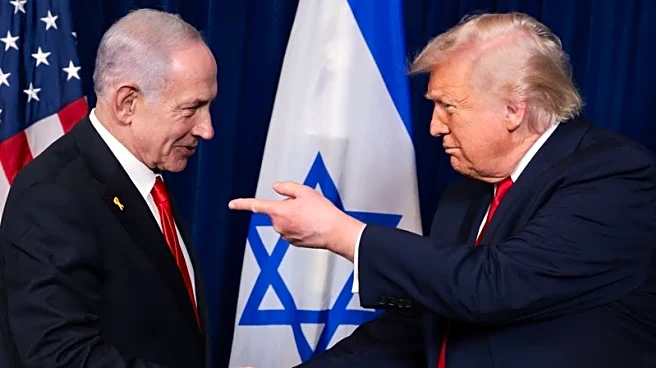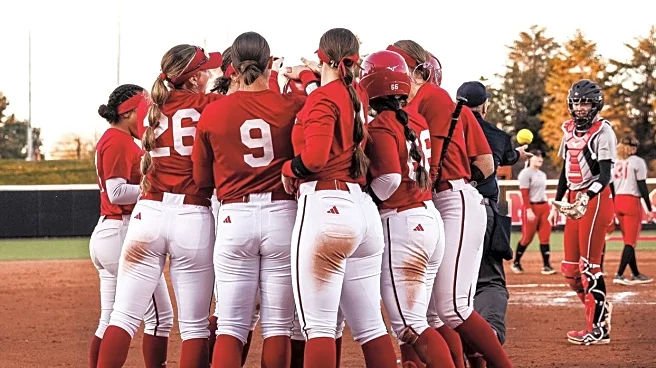BELEM, Brazil (AP) — Fire disrupted United Nations climate talks on Thursday, forcing evacuations of several buildings with just two scheduled days left and negotiators yet to announce any major agreements.
Officials said no one was hurt.
The fire was reported in an area of pavilions where sideline events are held during the annual talks, known this year as COP30. Organizers soon announced that the fire was under control, but fire officials ordered the entire site evacuated for safety checks and it wasn't clear when conference business would resume.
A few hours before the fire, U.N. Secretary-General António Guterres urged countries to compromise and “show willingness and flexibility to deliver results,” even if they fall short of the strongest measures some nations want.
“We are down to the wire and the world is watching Belem,” Guterres said, asking negotiators to engage in good faith in the last two scheduled days of talks, which already missed a self-imposed deadline Wednesday for progress on a few key issues. The conference, with this year's edition known as COP30, frequently runs longer than its scheduled two weeks.
“Communities on the front lines are watching, too — counting flooded homes, failed harvests, lost livelihoods — and asking, ‘how much more must we suffer?’” Guterres said. "They’ve heard enough excuses and demand results.”
On contentious issues involving more detailed plans to phase out fossil fuels and financial aid to poorer countries, Guterres said he was “perfectly convinced” that compromise was possible and dismissed the idea that not adopting the strongest measures would be a failure.
Asked whether he had a message for U.S. President Donald Trump, who has pulled the world's second-largest carbon polluter out of climate talks: “We are waiting for you.”
When asked if there was any hope that Trump would change his tune on climate change, Guterres smiled and said: “Hope is the last thing that dies."
At a U.N. session in September, Trump called predictions of climate change a ” con job.″ The U.S. federal government is absent from the negotiations in Belem on the edge of the Amazon.
Guterres was more forceful in what he wanted rich countries to do for poor countries, especially those in need of tens of billions of dollars to adapt to the floods, droughts, storms and heat waves triggered by worsening climate change. He continued calls to triple adaptation finance from $40 billion a year to $120 billion a year.
Officials from nations battered by natural disasters gave emotional testimony earlier this week imploring the world to stop talking and start acting.
“No delegation will leave Belem with everything it wants, but every delegation has a duty to reach a balanced deal,” Guterres said.
“Every country, especially the big emitters, must do more,” Guterres said.
Delivering overall financial aid — with an agreed goal of $300 billion a year — is one of four interconnected issues that were initially excluded from the official agenda. The other three are: whether countries should be told to toughen their new climate plans; dealing with trade barriers over climate and improving reporting on transparency and climate progress.
COP30 President André Corrêa do Lago had given negotiators a Wednesday deadline for some kind of package on those four issues, but no deal was in sight.
More than 80 countries have pushed for a detailed “road map” on how to transition away from fossil fuels, like coal, oil and natural gas, which are the chief cause of warming. That was a general but vague agreement two years ago at the COP in Dubai.
Guterres kept referring to it as already being agreed to in Dubai, but did not commit to a detailed plan, which Brazilian President Luiz Inácio Lula da Silva pushed for earlier in a speech.
___
The Associated Press’ climate and environmental coverage receives financial support from multiple private foundations. AP is solely responsible for all content. Find AP’s standards for working with philanthropies, a list of supporters and funded coverage areas at AP.org.
___
This story was produced as part of the 2025 Climate Change Media Partnership, a journalism fellowship organized by Internews’ Earth Journalism Network and the Stanley Center for Peace and Security.











